Author's note: Recently Tiffany Torres Williams of Project 2025 Takedown approached me and said (paraphrasing), "This Project 2025 stuff is good, but where are you in the conversation? All I hear are the authors of Project 2025. If you want it to count, it's okay to be subjective. It's more than okay, it matters." I thought about it, wondering what my intent was to just simplify everything, and if having a dialogue to accompany the text might reach a broader audience. So things could change a little moving forward as I continue to pick apart the noise and destruction of democracy that is Project 2025. Please continue to give feedback in the comments and I'll do my best to stay flexible in how I present the information. Thank you.
This section is written by Christopher Miller, who served as acting U.S. Secretary of Defense for 72 days under the Trump and Biden Administrations, and after criticism for not deploying the National Guard early enough on January 6th was succeeded by Deputy Secretary of Defense Dave Norquist. Miller, who actively took steps to temporarily halt cooperation with the incoming Biden Administration, has publicly praised Russia's "warfare concepts." Post-White House he published a memoir, Soldier Secretary: Warnings from the Battlefield & the Pentagon About America's Most Dangerous Enemies, and in 2023 began work on the Heritage Foundation's Mandate for Leadership, the basis for Project 2025.
The Constitution requires the government to provide defense, with the President serving as "Commander in Chief" of America's armed forces. We do our best to avoid wars, but inevitably we will need to fight at some point. Thus the Department of Defense (DoD) is the largest part of the government, with an annual budget of $850 billion, more than 50% of government spending. And while the DoD used to be trustworthy, according to Miller, it's a hot mess now, mostly because of the Biden Administration's equity (equal opportunity) agenda and vaccine mandates, but also the disastrous withdrawal from Afghanistan. Does this make sense, he asks, when 100,000 people a year die from drugs, more than four times the amount of soldiers we lost in a 20-year war?
The total number of casualties in the War in Afghanistan is somewhere between 176,000 and 212,191.
Technology is critical, but also sketchy, Miller says, and we should be more focused on having a free society. ("Free" here is relative, depending on which targeted group you talk to.) Wars will always happen. The American people need to proceed with their ears, hearts, and souls.
DOD POLICY
China's our biggest problem, Miller says, and we need to stop them from taking over the world. They are currently building up their military and have a lot of nuclear weapons (potentially more than us). Our allies--Taiwan, the Philippines, South Korea, and Japan--are at risk for a Chinese takeover, which would upset the balance and give China too much power. We've got to stop it, even if it's costly and risky to Americans, Miller says. Russia, Iran, and North Korea are also risks and things look pretty grim overall. We can't just wish away these problems, but need to confront them. Thus China must be our highest priority, as well as expanding our own nuclear arsenal, but we need our allies to actively support us. They need to do their own footwork when it comes to counterterrorism, and let us focus on the homefront.
DOD ACQUISITION AND SUSTAINMENT
According to Miller we need to expand technology and staff in order to fight these wars, but bureaucracy is standing in our way. The budget isn't flexible enough to account for the cost of new equipment, and so we march into war with older weapons and vehicles, and are at a disadvantage.
And while our military budget is more than 3 time the size of the next-largest in China, according to Miller it isn't enough. He wants quicker and easier cash for military tech, equipment, and sundry, relying on American-made products and prioritizing military manufacturing over things like electric vehicle batteries. Miller claims to want to help small businesses become medium and large vendors in order to create compeititon and durable supply chains.
This will be hard to do when taking into consideration the tariffs on products like steel and aluminum. China produces 1000% more steel than the U.S. and so supplies are either limited on our soil, or purchased at a greater expense. Since 2018 the tariffs have raised taxes on Americans, including small businesses, by $80 billion, making it harder, not easier, for businesses to grow.
Miller wants to speed up the process, bypassing pass/fail checklists and regulations for military equipment, and focus on emphasizing recruitment and numbers.
DOD RESEARCH, DEVELOPMENT, TEST, AND EVALUATION (RDT&E)
Miller recommends reform:
Maintain high levels of innovation, America's greatest competitive advantage if it wants to succeed over our adversaries, including boosting science, engineering, and tech
Improve the rapid deployment of technology to the battlefield by speeding through the prototyping cycle (testing new weapons), and thinking proactively about future technologies in order to stay ahead of China
Preventing China from stealing U.S. technology
Tailoring to specific sectors, like universities and labs
A common theme (so far) in the military conversation of Project 2025 is the cross-pollination of defense and academia. More simply put, the military will become a greater presence in our schools.
DOD FOREIGN MILITARY SALES
According to Miller, in fiscal year 2021 (Biden) military sales took a "nose dive" to $34.8 billion, down from a record high $55.7 billion in 2018 (Trump).
What Miller fails to predict here is that in fiscal year 2023 sales were up to $66.2 billion, and in 2024 they are already above $80 billion and likely to surpass $100 billion by the end of the year.
Miller goes on to say this "decrease in sales" is a hindrance on the U.S., along with high costs and "mundane" technology, and that this could all be fixed by pushing exports out the door faster and removing the Congressional review process, which has led to the loss of billions of dollars in arms sales.
Important to note here that Congress has never actually blocked any arms sales.
"The AECA (Arms Export Control Act) contains a mechanism for Congress to adopt a joint resolution of disapproval for arms sales notified by the President; Congress has never successfully blocked a proposed arms sale via such a resolution." - Paul K. Kerr, Congressional Research Service
Minimizing the barriers to collaborate with our allies in the U.K., Canada, and Australia--no other countries mentioned here--and speeding up the contracting timeline in order to boost arms sales, Miller says, will help the U.S. to manage their suppliers around the world.
Yet another theme persists here: speed and removal of any speedbumps (reviews, checks and balances, safety regulations) that might prevent overall output.
DOD PERSONNEL
America's armed forces are vital, but receive little assistance or encouragement from their teachers and influencers when it comes to joining the military. They should be honored to join, Miller states, yet the Biden Administration has turned military service into "just another place to work."
Joe Biden's son, Beau, served in Iraq and was awarded a Bronze Star for his service.
We need to return the military to its "place of honor and respect," Miller says, and boost recruiting. And while he claims that numbers have taken a nose-dive, in 2024 military recruiters saw some of their highest numbers thanks to the DoD's removal of a few disqualifying conditions like asthma and dyslexia. However, Miller still sees this as a problem and wants greater recruiter presence in secondary (6th-12th grade) schools, and also to require Armed Services Vocational Aptitude Battery (ASVAB) tests--military entrance exams--at any schools that receive federal funding. This would also include an increase in JROTC programs and military recruiters at every townhall session in each district.
Miller clearly wants any and every able-bodied American to join up and fight for their country…that is unless you have HIV or "suffer from gender dysphoria," in which case you will be expelled.
Other changes include "restoring faith to the force," with more chaplains on military bases, dissuading "social engineering agendas" among military leadership, reinstating unvaccinated servicemembers (restoring rank and issuing back pay), eliminating "Marxist indoctrination" about Critical Race Theory, and removing diversity, equity, and inclusion offices and staff. Miller states that any armed servicemember engaging with civilian critics via social media will be disciplined, and an audit will be performed to, again, remove "Marxist indoctrination." And above all, any policy that once allowed a transgender person to serve in the military will immediately be reversed, along with any financial benefits used for gender-affirming care or reproductive health.
I want to stop here, because Miller has used the term "Marxist indoctrination" twice, and it's something we may be taking for granted. Because by definition, "Marxism" includes many, many parts of society and the way we go about things, namely our economic activities and the materialistic way we live. It deals with legal and cultural systems, ideologies, and the great divide between the wealthy and working class. So the idea that "Marxism" refers only to a conversation of systematic racism and gender affirmation is ludicrous. Karl Marx was considered "neither racist nor anti-racist" [DIANE PAUL] and certainly didn't have a concept of transgenderism. Yet conservative society now equates his teachings with both because he leaned very much to the left.
Miller goes on to discuss improvements necessary to make the lives of military families better, though he doesn't specify what will be considered a "family."
DOD INTELLIGENCE
The Defense Intelligence Enterprise (DIE) accounts for the bulk of the Intelligence Community's Personnel and a significant portion of its budget. According to Miller the DIE "must deliver accurate, unbiased...insights.” However he goes on to say that on their current path they provide "politicized intelligence assessments that mislead policymakers." It would seem that these two antithetical takes are in the eye of the beholder, or administration in this case. Miller believes the remedy to be "unbiased" intelligence reporting, countering China and Russia, and forging better relationships with our allies.
This, however, would seem to contradict Donald Trump's recent statement about how he would potentially treat the European Union, our "allies."
". . . for years, we were paying almost all of NATO. We were being ripped off by European nations both on trade and on NATO. I got them to pay up by saying one of the statements you made before, if you don’t pay, we’re not going to protect you." - Donald Trump, Harris-Trump presidential debate
Miller goes on to say we must expand Defense's integration into and with other agencies, including stronger cyber defense, and providing better technology systems both in the air and under the water, as well as at the border. It is his opinion that because of the Afghanistan withdrawal and the Russia-Ukraine conflict, as well as our dwindling relations with Middle-Eastern countries, the U.S. government has lost public trust.
Note: It’s curious that this document was not updated since 2022 to include the Israel-Hamas War, seemingly one of the bigger and more pertinent conflicts of the last few years.
Finally, Miller wants to return the control of security clearance investigations to the Office of Personnel Management (OPM), which, following a data breach in 2015, was transferred (mostly) to the U.S. government's civilian workforce. However, this might need clarification, as it appears the DoD conducts most background investigations in the federal government, and the Department of Homeland Security (DHS) issues the security clearances.
U.S. ARMY
While the Army's mission is to "deploy, fight, and win our nation's wars by providing...land dominance," Miller states that due to an eroding budget and low recruiting numbers (refer to recruiting stats under "DoD Personnel"), as well as a the "politically driven top-down" focus on equity, inclusion, and climate change, the Army can no long assert its dominance over adversaries.

Miller would like to rebuild the Army, referencing that the Army's budget has "decreased by roughly 11 percent since 2018." However, according to the Center for Strategic and Budgetary Assessments, the U.S. Army budget was $164.7 billion, which then increased by 5% at the time of this document in 2022 to $173 billion, and another 7% to $185.5 billion in 2024. He states that due to this “decline” in funds and recruitment, the Army has been forced to lower training standards, reducing their strength. He demands more money, more training, and more recruits, and makes known his distaste for using the Army as a "test bed for social evolution." While not expressly stated, it is assumed he is referencing the aforementioned "equity and inclusion," and likely inclusion and recognition of the LGBTQ community.
U.S. NAVY
The U.S. Navy (USN) exists for two primary reasons, according to this document: "to project prompt, sustained, and effective combat power globally...and to deter aggression by potential adversaries..." which is currently being challenged by China. Miller states that the U.S. should "invest in and expand" our force, including "a fleet of more than 355 ships." The U.S. Navy currently has 470 naval ships, 50 scheduled for retirement by 2028, while approximately 95 new ships are in the planning stages. [WIKIPEDIA] Miller would like a new General Board, to establish a Rapid Capabilities Office, to increase our ammunition (cruise missiles), and to provide better warfighter development training for Navy personnel.
U.S. AIR FORCE
Miller believes that currently America's Air Force could not stand up to a "great power" like China or other adversary with nuclear weapons. He points to the fact that the Air Force "for 30 years" has received less funding than the Army or the Navy. This was not the case in 2024, when it received the biggest percentage of the U.S. military budget. But it is important to note that since 2020 the Space Force budget has come out of Air Force funds. And Miller's claim that the Air Force's plan to retire "1,463 aircraft while buying just 467" doesn't seem to add up either. According to Shepherd Media (April 2024) the number of retired aircraft is closer to 1000, while the Next Generation Air Dominance (NGAD) fighter program has a 5-year, $28.48 billion plan to build "at least" 1000 new units, the first ready for combat in 2028. [AIRANDSPACEFORCES.COM]
Miller proposes, again, increased funding, more aircraft, more weapons, and faster production.
U.S. MARINE CORPS
The U.S. Marine Corps (USMC) is the maritime land force of the DoD and the Navy, and often works side-by-side with the Navy in special missions. However, according to Miller, it has had little training in water pursuits due to "extended operations ashore" since 9/11, creating more of a "second land army," rather than an extension of the Navy. He references "Force Design 2030," a plan to redesign the Marine Corps, which would include downsizing "less-relevant" equipment, eliminating USMC law enforcement battalions, reducing infantry size, and using excess funds for newer equipment. Miller proposes increasing junior noncommissioned officers (NCOs) and reducing deployments, and adding more amphibious ships (aircraft carriers, land-troop transport, etc.).
U.S. SPACE FORCE (USSF)
"U.S. Space forces conduct global space operations to sustain and enhance air, land, and sea effectiveness, lethality, and superiority." Miller proposes reversing the Biden Administration's "defense posture" that aimed to keep the Space Force in Colorado. Donald Trump wants to move it to Alabama. Both administrations claim the other’s actions are politically motivated, moving or keeping the Space Force in a state that votes red or blue. Ultimately, according to President Biden, it's more efficient and less expensive to stay put and focus on things like the Russia-Ukraine conflict instead of proposing the major delays and costs that come with moving an entire branch of the military.
U.S. CYBER COMMAND
Established in 2010, USCYBERCOM was established to manage cyberspace operations and stay up-to-date with rapidly-evolving threats. Miller believes the Russia-Ukraine conflict has magnified where there are holes in operations, and believes USCYBERCOM should be separate from other National Security agencies like the DoD and NSA. He mentions Donald Trump's Memorandum 13, which removed the White House from covert cyber action, allowing response to be quicker but without the President's sign-off.
It's interesting to note here that Miller wants to end USCYBERCOM'S participation in election fortification so that it doesn't appear that the DoD is partisan or biased in any way. However, cyber protection is exactly what we need in elections, considering the interference and meddling from overseas adversaries in past (at least one, probably more) election cycles—internet hacking is the number-one tried-and-true method.
SPECIAL OPERATIONS FORCES
While the War in Afghanistan was a failure, Miller says, it was also an "extremely effective counterterrorism campaign" on the part of the U.S. Special Operations Command (USSOCOM).
Notably missing here is a conversation about "weapons of mass destruction," but I digress...
Miller doesn't think reducing the size of the USSOCOM in favor of other "service priorities" is a good idea, and instead wants to "repurpose" their mission, focusing more on "irregular warfare" (maintaining government legitimacy and influence) for things like Russian disinformation and China's economic warfare. This would include the "name and shame" approach, where the U.S. could publicly out adversaries who target our democracy.
NUCLEAR DETERRENCE
Nuclear deterrence, Miller says, is one of the top priorities of national security, and "every plan relies on the assumption that nuclear deterrence holds."
Which begs the question: what if it doesn't?
Once upon a time the U.S. felt pretty confident about their ability to power-down the rest of the world's nuclear threats. Today, however, we have four pretty strong competitors (with nukes) in China, Russia, North Korea, and Iran. Miller says all our nuclear capabilities date back to the Cold War. However, we have to remember that while the Cold War began in 1947, it ended in the '90s, and the nuclear arsenal we have (while significantly less than we did in the 1960s) is considered fairly modern even by today's standards. Still, while China is rapidly producing nukes, America appears only to have "concepts of a plan" when it comes to nuclear-building facilities. And (gasp) Miller might be right that we need more modern weapons in order to keep up with the Joneses.
MISSILE DEFENSE
Similar to the nuclear weapons argument, Miller concludes that China, Russia, North Korea, and Iran are updating and stockpiling their missile defenses and that the U.S. needs to pay better attention in order to keep from falling behind, but that it's the Left holding us back from doing so. He thinks we should buy at least 64 Next Generation Interceptors (NGIs), rather than the 20 proposed by the Biden Administration. As of the date of this article, none of our four nuclear adversaries are known to have any NGIs.
Miller states that the "Ukraine conflict amply demonstrates that the U.S. regional missile defense capabilities are very limited" because "the U.S. has been unable to supply our partners reliably with any capabilities..."
Important to note that prior to passing the $95 billion package that would send aid to Ukraine, many Republicans stood in the way. Senator Ron Johnson of Wisconsin stood on the Senate floor and said, "Vladimir Putin is an evil war criminal" but "Vladimir Putin will not lose this war," that there was no point to spending American dollars on a man who could not be stopped, so why try? This says more about the limitation of our compassion than our defense capabilities.
This section ends without closure, so I’ll finish up with some Daft Punk lyrics that I think embrace the tone.
“Work it harder, make it better
Do it faster, makes us stronger
More than ever, hour after hour
Work is never over”
Project 2025
Ellie is an author, editor, and owner of Red Pencil Transcripts, and works with filmmakers, podcasts, and journalists all over the world. She lives with her family just outside of New York City.







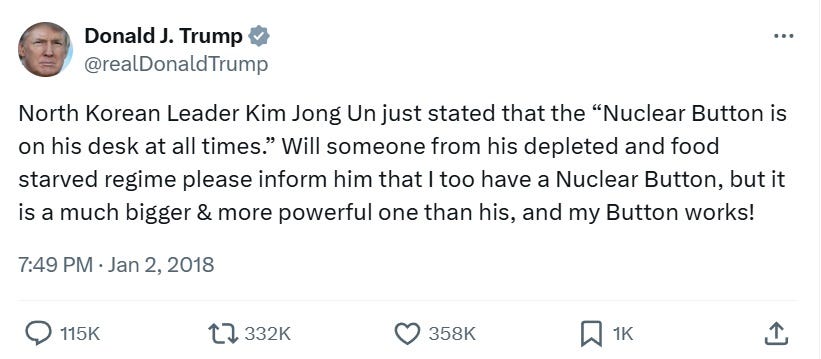
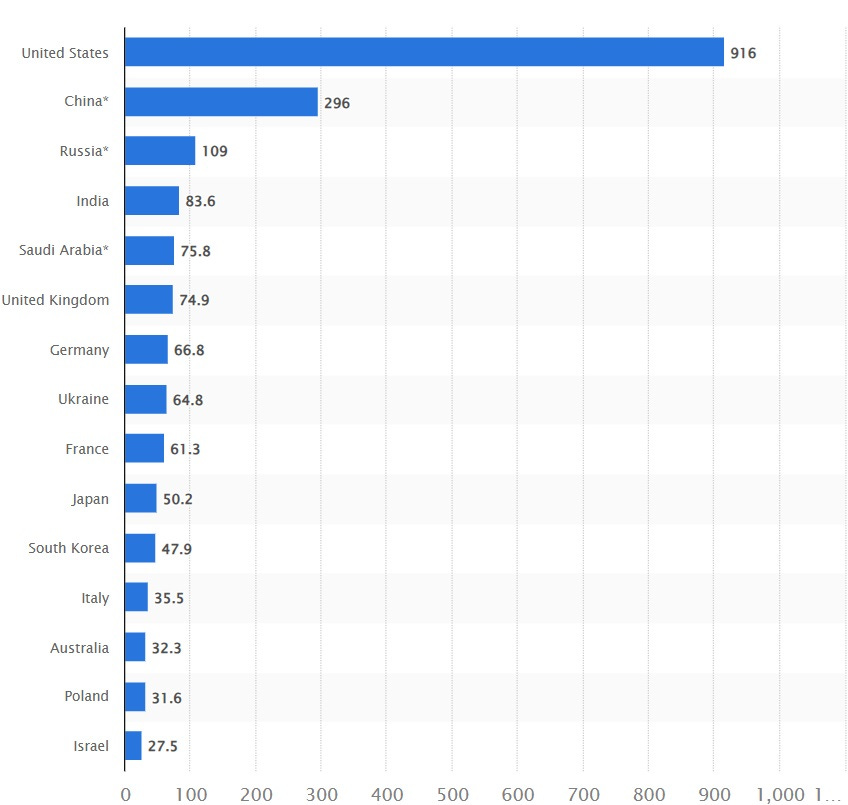
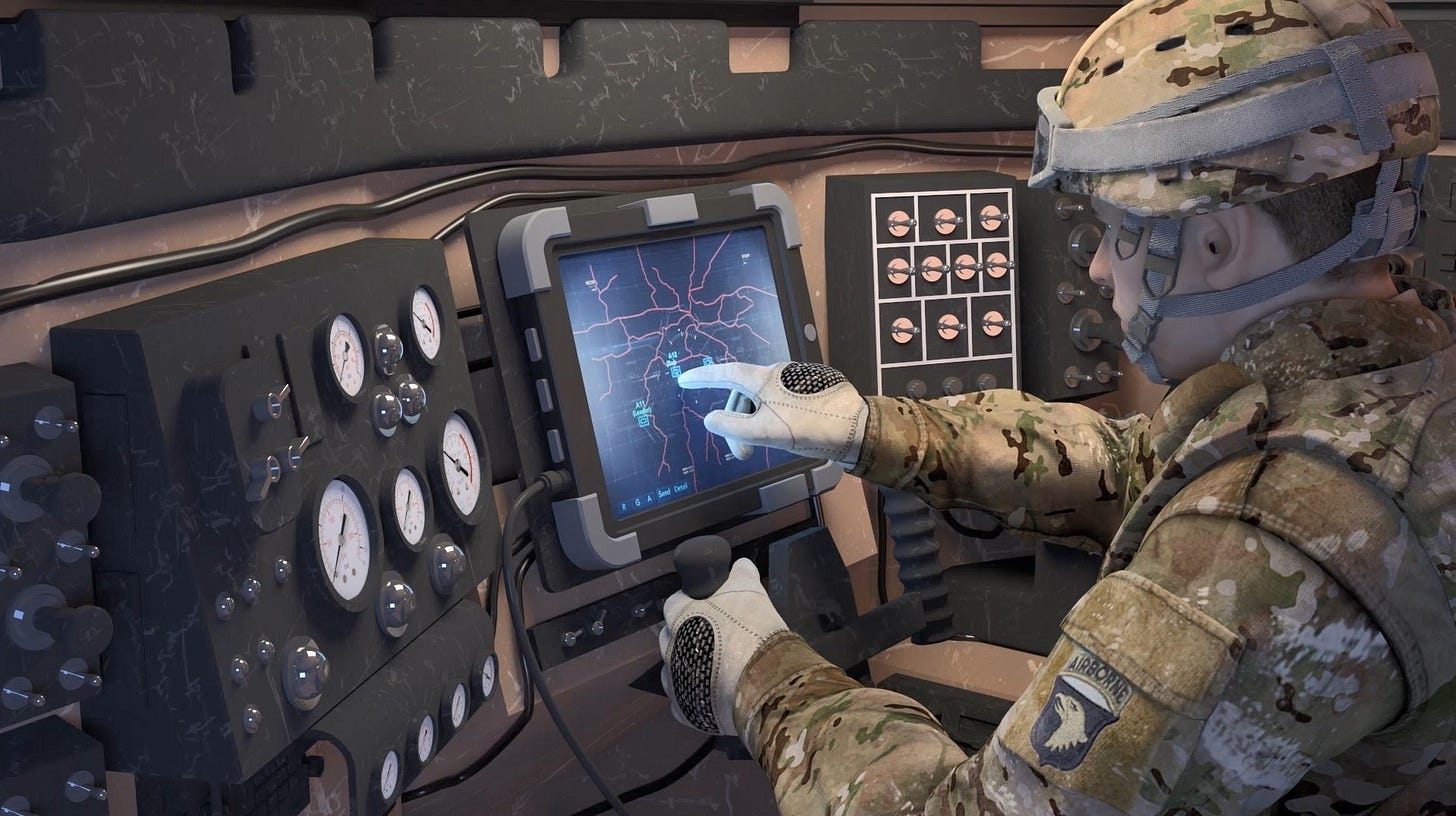









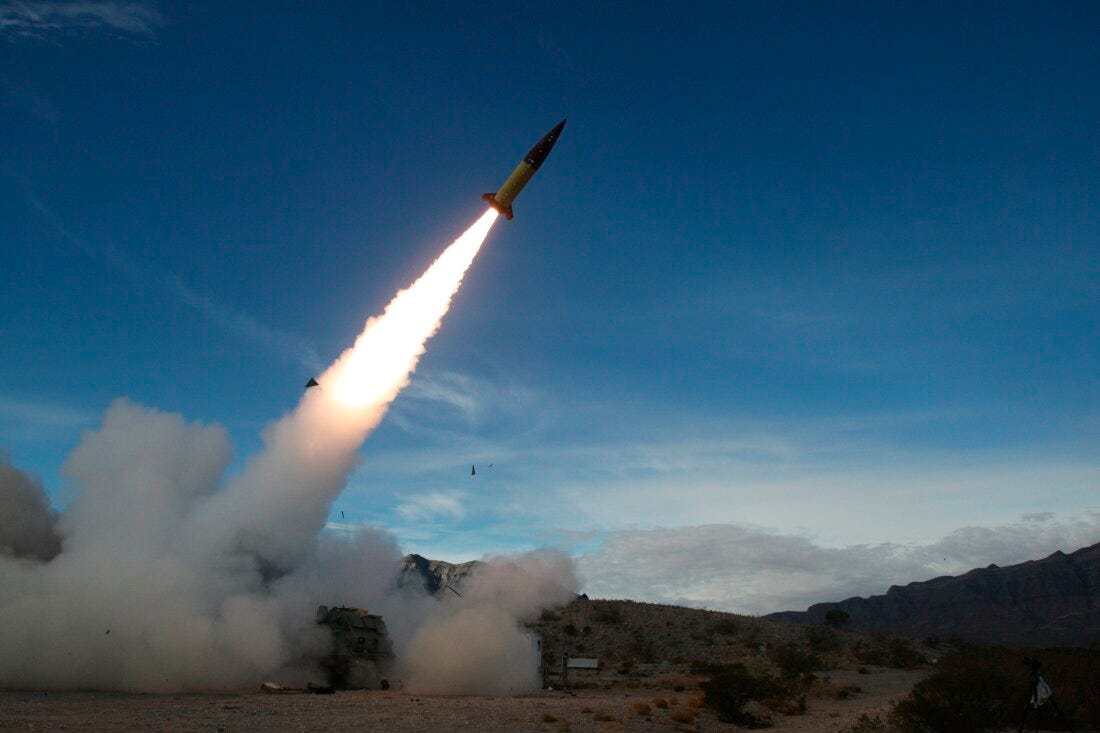
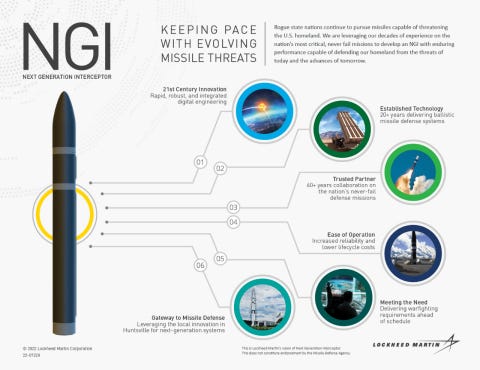
This approach of analyzing Project 2025 is more helpful than just publishing the content